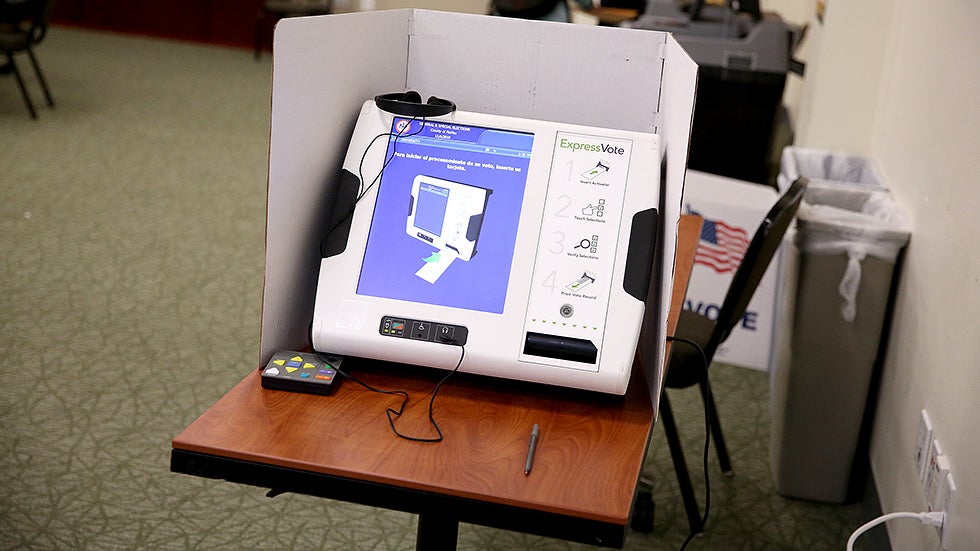By:
Accurate, transparent and accessible elections—this is the objective that motivated me to create Dominion Voting Systems 18 years ago in Canada. From the start, the company was focused on improving paper-based voting, and it continues to pursue vote-tabulation solutions that enhance accuracy and transparency through audits and reviews, as well as by allowing voters to create, verify and privately cast a marked paper ballot. But if you’ve heard about our role in the U.S. election on Twitter, it’s likely you’ve heard something different.
The allegations against Dominion are bizarre, but I’ll set the record straight. Dominion is an American company, now headquartered in Denver. Dominion is not and has never been a front for communists. It has no ties to Hugo Chávez, the late dictator of Venezuela. It has never been involved in Venezuelan elections. None of Dominion’s systems use the Smartmatic software that has come under attack, as any state certification lab could verify.
There is no secret “vote flipping” algorithm. Third-party test labs, chosen by the bipartisan Election Assistance Commission and accredited by the National Institute of Standards and Technology, perform complete source-code reviews on every federally certified tabulation system. States replicate this process for their own certifications. Postelection canvassing and auditing also exist to provide additional assurance of the vote totals’ accuracy.
The part of the election process on which Dominion focuses is highly regulated and certified. The company doesn’t work in noncertified areas such as voter-registration systems, poll books or signature-verification software, and it doesn’t provide vote-by-mail printing. Dominion voting machines do one thing: accurately tabulate votes from county-verified voters using a durable paper ballot controlled and secured by local elections officials.
Some of the main counties where results have been contested, like Philadelphia and Allegheny (Pittsburgh), don’t even use Dominion voting systems. In fact, across the 14 Pennsylvania counties that use Dominion systems, President Trump received 52.2% of the vote.
Despite the company’s limited role in elections, it has been the target of a stream of outrageous statements since Election Day—increasingly reckless and defamatory allegations that don’t stand up to scrutiny. Dominion is never able to affect the outcome of an election. The entire certification process makes sure of that. Regardless, the company’s focus has always been to be nonpartisan and respectful of all views. Dominion’s customers are election officials from both parties in the 28 states where it operates.
Unlike its critics, Dominion has had to attest to every part of its business ownership and operations to governmental agencies and in courts—under oath and penalty of perjury. We believe it is important to welcome the highest degree of scrutiny and transparency in the election process. This builds trust and leads to more resilient and robust elections. The widespread disinformation campaign America currently faces, however, does the opposite. Baseless and ludicrous smears are presented without evidence and amplified across social media.
These attacks undermine the tens of thousands of state and local officials who run our elections. When it comes to counting ballots, officials have established a distributed, multilayered system with checks and balances, in which robust safeguards ensure that no one needs to trust blindly any person, company or technology. Here are some of the safeguards in place in Georgia, where the Trump campaign has contested the result:
• Tabulation machines are tested publicly, before bipartisan witnesses, before and right after Election Day.
• On Election Day, poll workers—not Dominion systems—verify voters’ identities, including a signature check.
• Voters mark a paper ballot to vote. Absentee voters use pens, while in-person voters use “ballot marking devices,” which display a digital ballot for voters to make a selection and then print a paper record. In both cases, voters verify the marked paper ballot before casting it in a secure ballot box through an air-gapped scanning tabulator.
• After polls close, results are tallied by local officials. Paper ballots are safeguarded by thousands of poll workers distributed across 2,656 precincts.
• The Georgia Secretary of State’s Office certified election results after hand-auditing five million ballots, which showed that the paper-ballot voting system counted and reported results accurately. The small change to the final tally was due entirely to the addition of ballots that had been uncounted due to human process errors.
• The state also enlisted Pro V&V, a certified third-party testing laboratory, to audit a random sample of Dominion machines. No tampering was found.
The wild allegations of recent weeks have fueled the harassment of election officials and Dominion employees across the country—including stalking and death threats. The lies and smears have no basis in fact, but they do real damage to our democracy by casting doubt on the legitimacy of the electoral process. The false allegations should be retracted immediately.
Citizens should know that America’s rigorous, layered and transparent electoral process—in which Dominion is proud to participate—ensures its elections are secure, accurate and credible.
Mr. Poulos is president and CEO of Dominion Voting Systems.
To see this article and subscribe to other’s like it, click read more.
Source: Fake Claims About Dominion Voting Systems Do Real Damage – WSJ
 Listen Online
Listen Online Watch Online
Watch Online Find a Station in Your Area
Find a Station in Your Area









 Listen Now
Listen Now Watch Online
Watch Online
